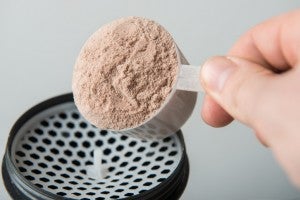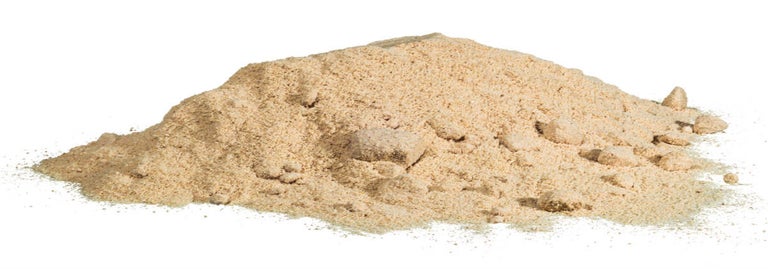 Supplements and multivitamins can be a great way to help improve deficiencies or increase results in training. Protein is one of the things many people supplement, usually to help muscles recover and ramp up a workout. Coming in a variety of consumable forms but most popularly found in a powder, protein is one of the most well-known and commonly used supplements today.
Supplements and multivitamins can be a great way to help improve deficiencies or increase results in training. Protein is one of the things many people supplement, usually to help muscles recover and ramp up a workout. Coming in a variety of consumable forms but most popularly found in a powder, protein is one of the most well-known and commonly used supplements today.
What does protein do?
We all know protein is important but we don’t all know why. Essentially, protein helps build and repair your body’s organs, muscles, skin, hair, nails and bones, making it a necessity for proper health and physical function.
While it is an essential part of your health, it can also be used to help lose fat and build muscle, which is why supplements are so popular in the gym and amongst athletes and sports lovers. Although you can get protein from your food, supplements offer a concentrated hit that is more efficient and cost effective. This increased amount of protein helps preserve and burn fat instead, keeps you full to assist in weight loss and helps fast-track the repair of the worked muscles – all important for getting the most out of your training.
How are protein supplements consumed?
The most common way of consuming protein supplements is through a shake made from protein powder. These come in lots of different flavours and varieties so you can pick and choose what you like best. The most important time to have a protein shake is within half an hour of a workout. At this point the muscles are like a sponge and crave nutrition for muscle recovery and growth.
Other times you can have protein powder are before bed and as you wake. When you sleep you are going without food for a prolonged period and waking up without proper nutrition. A protein shake can supplement this. Protein shakes can even be consumed before a workout, as this gives your muscles the nutrition they need to tackle the effects of a weight training or high intensity session.
When deciding how much of the supplement you should have, it will depend largely on whether you are using the shake as a meal replacement or workout additive. For meal replacement purposes, 1 scoop for women and 2 scoops for men are recommended. When it is for before or after a workout, go with the recommended dose on the tub – usually 1 scoop.
The three types of protein
The three most common types of protein powders are whey, soy and casein. Each has its benefits and differences and it is important to get the right option for you.
Whey Protein
As a component of milk, the benefits of whey have been known for many years. It is quickly digested and has a superior amino acid profile along with peptides of several varieties, making it ideal as a workout supplement and giving you energy to tackle a tough workout or cool down efficiently. Another variety of this is whey isolate. Whey protein does have some isolate in it but is added as a concentrate, whereas isolate is considered more pure. However, it is more expensive and both can give you good results so the choice is predominantly a personal one.
Casein Protein
Casein is the other part of milk, making up 80% of it, and is also very good for the body. However, unlike whey, it is slowly digested instead and is therefore not recommended pre or post workout. Like whey, it has a superior amino acid profile and mixture of peptides.
Soy Protein
The most controversial choice, soy protein is considered by some as a superfood, but research has found to contradict this, stating that it does not have as much benefit as previously thought. If you do want to try soy, it is believed to have a number of vitamins, fibre and fatty acids which can help with your fitness goals. Some protein powders also come as a blend of several of the above. This is a great option as an everyday shake but is not recommended before or after a workout.
What to avoid when buying protein supplements
Where possible, choose natural ingredients and avoid chemicals used for sweetening or other additives. Some experts will also say to avoid soy as this does not have enough supported research to back it up as beneficial. Also remember that protein powder is for use when exercising or when deficient in protein and it can actually cause weight gain if used incorrectly.
More than just a workout supplement
Protein powders aren’t just for athletes, gym junkies or sports enthusiasts looking to build muscle. It can also be helpful for teenagers growing who are physical regularly, those recovering from an injury to help accelerate the healing process and even if you’re going vegan and need a protein boost in your diet.


Share this article